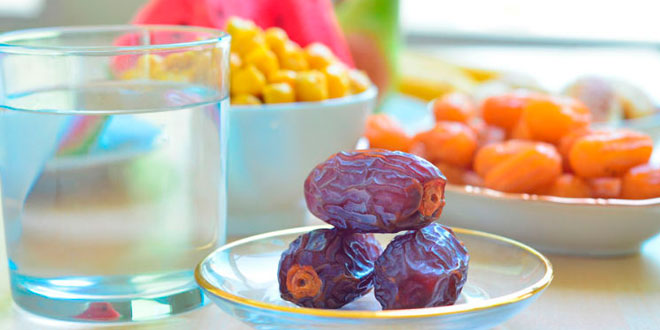
Tips to Stay Hydrated During Ramadan
The Holy month of Ramadan is right around the corner. During this period, Islam has not only mandated intermittent fasting for all believers, but also abstinence from lying, cheating, obscenity and other vices. In addition to the spiritual and ethical component, one aspect of the Rozas of Ramadan that differs from ordinary intermittent fasting is that the believer is forbidden any drink, in addition to food. This can have a range of consequences, depending on geographical location and climate.
For Karachiites, this year, Ramadan is going to be relatively difficult, with it falling in the summer months, with both long and hot days. It is absolutely imperative that Muslims observing the fast watch their fluid intake, and take measures to ensure they don’t get dehydrated in the sweltering heat. The roza, after all, is not meant to be harsh on the body. It is meant to be manageable. But we need to take the right steps to manage it.
To the degree possible, avoid staying out in the sun and avoid rigorous exercise. For those gym-rats and exercise-freaks, don’t quit altogether, just tone down your workouts to the extent that you don’t lose excessive water and vital electrolytes.

Maximize on foods rich in water content, both at Sehri, and at Iftaar. By this, we’re talking about spinach, cucumbers, apples, strawberries, tomatoes and watermelons. Fruit smoothies are a refreshing (and did we say delicious?) option at Sehri time. Go for a salad, with some of the above fruits and vegetables, at iftaar time. This is plenty-fold better than the usual deep fried pakoras and samosas. Dates should already be a go-to option at iftaar time. Apart from being the Sunnah of the Prophet (PBUH), they are a great way to stay hydrated, as they contain high amounts of glucose, stimulating your cells to store fuel and fluid.

Stay away from uber-salty foods at both your primary meals. Salt pulls the water out of your cells, making you feel dehydrated. Spice also increases thirst.
It may seem counter-intuitive, but avoid sweetened fruit juices and squashes. Yes, it’s a staple on the iftaar table, but it’s simply a source of empty calories (one of the reasons why people tend to put ON weight in the month of Ramadan). Go for a natural, freshly-squeezed juice instead.

It’s time to cut to the chase and talk about the most important aspect of hydration: water intake. To start off, it would be an intelligent idea to calculate how much water your body needs between fasts. The number of ounces you need is your weight in pounds divided by 2. Aim to drink 2 glasses of water at Sehri. Anything more than that will dilute your stomach content too much and cause indigestion. Another imperative: Taraweeh prayer is a great time to rehydrate. Bring at least a 12 ounce water bottle (preferably loaded with ORS) and sip regularly throughout the nightly prayer. It’s pivotal that you don’t drink excessive amounts of water at once, it’ll mitigate the benefit and just make you feel bloated, and nobody likes that.

Let’s cap it off by reminding ourselves why it’s so important to stay hydrated during Ramadan. Recall that approximately 60% of your body is made up of water. It is imperative for the normal functioning of your cells, particularly your nerves. Hyper-osmolar states (dehydration) can result in symptoms ranging from headaches to dizziness.
Here’s a final pointer for you: fight the urge to drink ice-cold water at iftaar time. It may be tempting, but it constricts your blood vessels and might result in indigestion. Opt instead for room-temperature, or mildly chilled water. Either way will quench your thirst!

